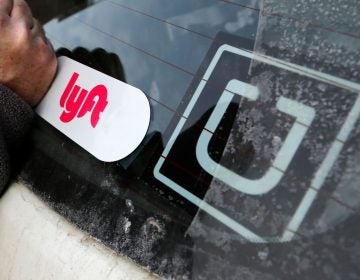New regulations, payment protections for gig workers in N.J.
With as many as 600,000 New Jersey residents now working as freelancers, Assemblyman says legislation is needed to ‘ensure they’re treated fairly.'

(Shutterstock.com)
As technology continues to reshape the state economy, more and more New Jersey residents are choosing to work for companies on a freelance basis. In response, state lawmakers are proposing a new set of labor regulations to help ensure freelancers are treated fairly and get paid on time.
Under a measure that was approved by the Assembly Appropriations Committee yesterday, contracts between a company and a freelance worker would generally have to be written, and new penalties would be established to punish companies that avoid paying a freelance worker their agreed compensation.
The bill, sponsored by Assemblyman Andrew Zwicker (D-Somerset), would also require the state Department of Labor and Workforce Development to serve as a regulatory agency for freelance work arrangements.
The effort to establish new regulations in New Jersey that specifically protect freelance workers comes after a similar law was enacted in New York City last year that was considered to be the first of its kind in the nation. Since that law went into effect in May 2017, it’s helped to save workers more than $250,000 in lost wages, according to city officials.
While the rise of ride-hailing services like Uber and Lyft has helped to swell the ranks of freelancers or independent contractors, that group also includes people in more lucrative fields like entertainment, finance, tech, business consulting and graphic design. Nationally, freelancers now make up more than one-third of the U.S. workforce, according to the New York-based Freelancers Union. By some estimates, as many as 600,000 New Jersey residents are working on a freelance basis, contributing some $30 billion to the overall state economy.
Slow pay, no pay

The bill sponsored by Zwicker would write new protections into state law to address several issues faced by freelancers, including chronically late payments from the company they’re working with, or getting no payment at all. The measure also attempts to discourage companies from mistreating freelance workers by making it easier for the freelancers to pursue late or skipped payments without having to initiate costly litigation. It also prohibits companies from using intimidation or denying work to a freelancer who seeks to recoup unpaid compensation.Violating the payment provisions of the bill would result in a client being charged with a disorderly person’s offense and facing fines of up to $1,000. Additional offenses could result in a client being charged with a fourth-degree crime and facing fines of up to $10,000.
“Freelancers are a valuable part of our workforce, and they provide many services, but too often they lack basic protections,” Zwicker said. “This bill will ensure they’re treated fairly, benefiting our economy and, in the end, everyone.”
“This bill is fairness, plain and simple,” said Assemblyman Gordon Johnson (D-Bergen), another prime sponsor.
The legislation defines what would be considered a freelancer’s “client” as a sole proprietorship, partnership, corporation, limited liability company, association, other business entity or nonprofit organization contracting with a freelance worker for compensation equal to or greater than $600. The measure also establishes that a freelancer “must be paid the compensation earned according to work terms agreed to by the freelance worker and its client,” and that the payment must be made within 30 days of the terms of the contract being satisfied by the freelancer if no other payment date was specifically agreed upon.
Legislation excludes several groups
The legislation excludes several groups of workers from being able to be defined as a freelancer; they are licensed medical professionals, persons engaged in the practice of law, New Jersey Real Estate Commission licensees, certain sales representatives that contract with manufacturers, and any person subject to a collective bargaining agreement that specifies wages and conditions of employment. Excluded from being considered a client under the law are governmental entities and general acute-care facilities licensed by the state Commissioner of Health and Senior Services.
The measure also requires the Department of Labor and Workforce Development to establish a “navigation” program geared toward freelance workers; it would assist freelancers via phone and email and provide information online about getting legal representation and other help.
The legislation was approved earlier this year by the Assembly Labor Committee, and yesterday it passed the Appropriations Committee along party lines in a 7-4 vote.
Championed by Mayor Bill de Blasio, New York City’s “Freelance Isn’t Free” law went into effect on May 15, 2017. Earlier this week, the city’s Department of Community Affairs said it has fielded 264 complaints from freelancers over the last year. Nearly all were related to payment violations, and the department was able to help the workers recover $254,866 in lost wages, city officials said.
Most of those who lodged formal complaints did not have to go through the courts to recoup their payments, and 90 percent ended up receiving the full amount that they were owed by a client, city officials said.
WHYY is your source for fact-based, in-depth journalism and information. As a nonprofit organization, we rely on financial support from readers like you. Please give today.




